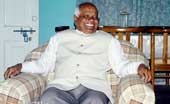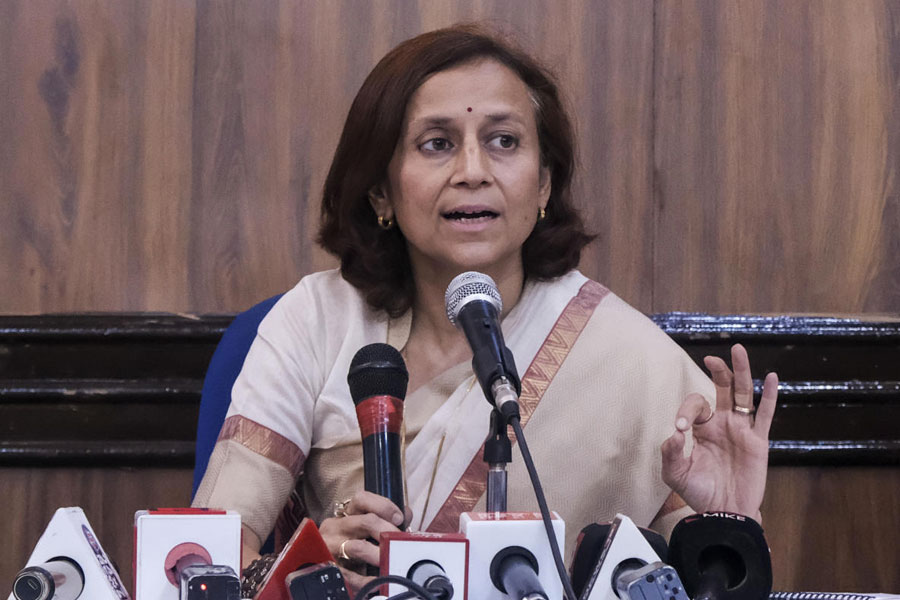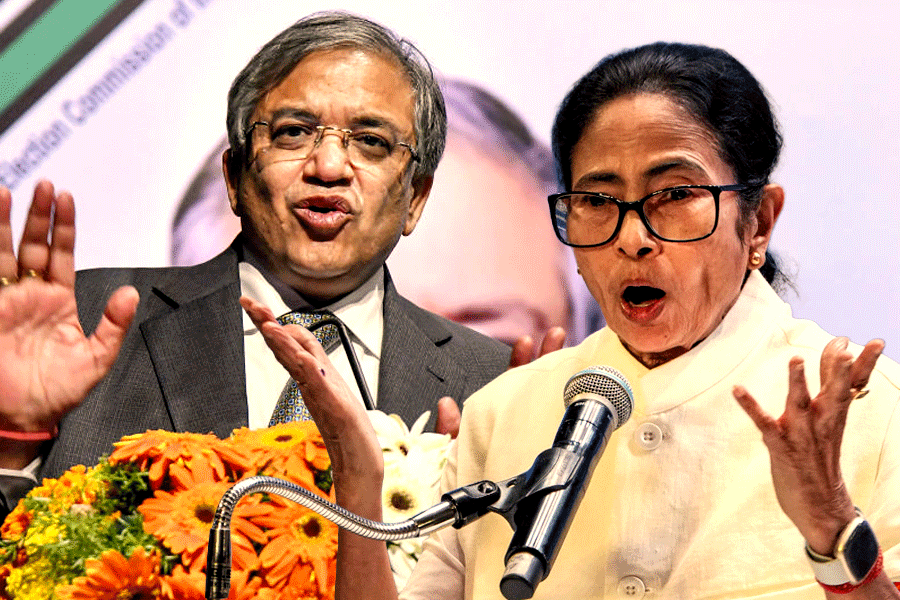 |
| P.C. Hembram enjoys a well-deserved break from his his hectic routine. Picture by Hardeep Singh |
His work took him away from his community and his subject. Still Pathik Chandra Hembram managed to remain both a Santhal and an anthropologist.
Born in a nondescript village in West Bengal, 62-year-old Hembram has charted a long and successful route. With no school in his native village, Hembram went to a primary school in a neighbouring village. “I remember walking eight miles through a forest to reach school. Since classes began early in the morning, I left home before sunrise. But I often missed the assembly meet.”
“Ours was a joint family, with my grandfather ruling the roost. I used to spend my leisure hunting and fishing with uncles and cousins.”
After school and graduation in arts, Hembram went on to complete his masters in anthropology from Ranchi University and followed it up with a Ph.D. and D. Lit in anthropology. Jobs came easy for Hembram. Looking back, he feels it was sheer determination that ensured his success in life. For Hembram, satisfaction has always been the sole criterion for choosing a job. That explains his decision to leave his assistant director’s job with the Anthropological Survey of India and join All India Radio. “I never hesitated to leave a job if I felt there was no room for further progress. I don’t remember pursuing anything that won’t take me further in life,” says Hembram, who was also appointed director-general of AIR for a brief period.
As chief of AIR, he met several politicians, including Farooq Abdullah, Giridhar Gamang, Ajit Jogi, L.K. Advani and Arun Jaitley. But he cherishes his meetings with the Bhil tribals of Madhya Pradesh. “The Bhil tribe of Jhabua district in Madhya Pradesh is an impoverished and backward community. You will not find a single bird in Jhabua as the tribals have eaten them all. They often loot travellers. I came close to these tribals just because of a transistor! The radio set amazed them.”
Hembram found the Bhil tribesmen talented. “The children sang like nightingales. They knew all the folklores and recited tribal poems with elan. I remember organising a radio programme with these tots. It was a big hit with the people.”
Hembram also worked with Doordarshan and headed its Srinagar centre. Before his stint with Doordarshan he underwent training in filmmaking at the Film and Television Institute of India, Pune, and in broadcast journalism at the International Institute of Journalism, Berlin, and AMC, Singapore. “During my tenure as director of Doordarshan, Srinagar, our station was once bombed. Our bus was attacked by militants. A stone smashed the window next to my son’s seat and the person beside him was badly injured. The director of the local radio station, Lasa Kol, was assassinated by militants.”
Though he left Jhargram long ago, Hembram has always promoted the cause of the tribals. During his brief stint as chairman of Jharkhand Public Service Commission, Hembram introduced tribal languages as the medium for competitive examinations.
When told that not many tribals were conversant with their mother tongue, he said, “If they are allowed to appear in examinations in their own language, they will be interested in learning their mother tongue. This will help revive the indigenous languages.”
Hembram has written a number of books on tribal culture and languages. In 1988, he wrote Sari-Sarna that gave an in-depth information on the religious belief of the Santhals. In 2002, he wrote another book —Santhali : A Natural Language. He is currently compiling a collection of Santhali poems.
Hembram lives in Ranchi with wife Usha and two sons. But he visits his ancestral village regularly. His elder son, Taras, is a doctor in Delhi, while younger son Saresh has a diploma from the Indian Institute of Mass Communication.
When he is not writing or reading books on anthropology, Hembram relaxes by singing Santhali songs or playing the madal, a tribal drum. “Music is my passion,” he confesses.











